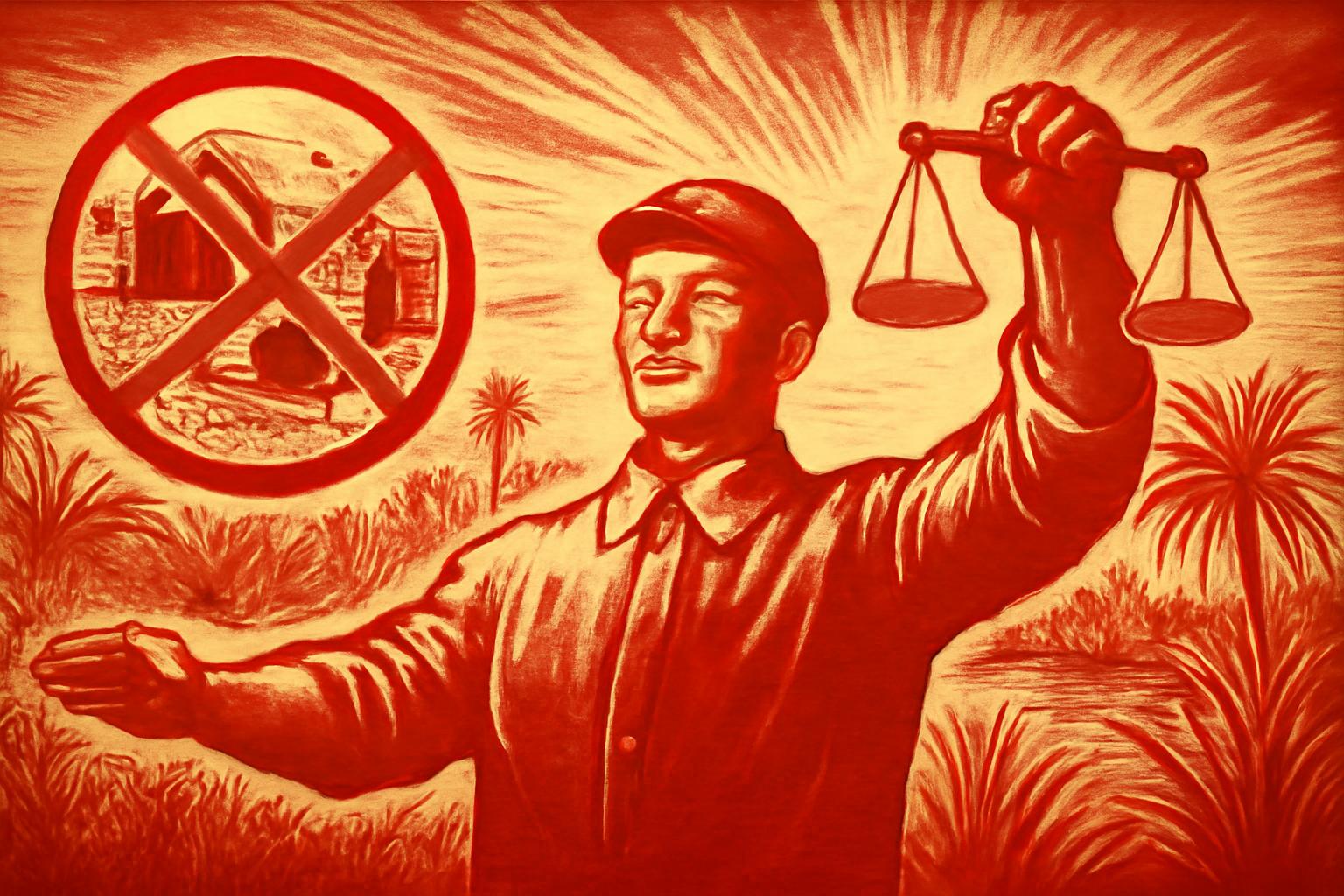A federal judge in Miami barred the government from relocating new detainees to a migrant facility carved into the Everglades, ordering within 60 days that the fences, generators, lighting, and waste systems installed during construction be removed, while the government fights the ruling. The decision came after environmental groups argued the site harms the delicate Everglades ecosystem and after the Miccosukee Indians condemned the land as sacred. A separate Florida court had already paused further construction. The facility sits at the heart of a vast subtropical wilderness. Reports from early July described tents, cages for thousands, and mobile housing for staff on a little-used airfield, with wetlands paved for more than eight hectares; about 750 detainees were housed at the time, and lawyers complained of inhumane conditions and limited meals. The president had opened the site at the end of June, likening it to Alcatraz and claiming that alligators and snakes would thwart escapes. By mid-June, the administration pressed for a tougher stance on migrants as an efficient, cost-effective means to execute mass deportations. In parallel, the Florida governor announced plans for a second detention center in Baker near Jacksonville, intended first for about 1,300 inmates and potentially up to 2,000, to be used for migrants lacking status and then deported, with the Baker Correctional Institute slated for conversion.
The heart of this spectacle is the merciless idolatry of order that capitalism demands: to turn land, water, and wild creatures into a backdrop for factories of punishment while pretending to uphold the law. Here is a system that reduces human beings seeking safety to numbers on a ledger, to cages and tents pitched in a sacred swamp, to a drainage of ecologies in the name of national sovereignty and “deterrence.” The courts, the governors, the executives—each acts as a technician of oppression, polishing a machine that treats migrants as expendable labor and disposable public expense. The Everglades is weaponized as stage-set, the Miccosukee’s sacred ground as bargaining chip, and the environment as collateral in a financial calculation about how many bodies can be processed, deported, and forgotten without upsetting the illusion of legitimacy.
And yet this is no mere administrative misstep; it is the visible tip of a systemic iceberg. The insistence on ever-tougher detention, the rush to carve out space for ever more “beds,” the boast that prisms of law can outpace hunger and fear—these reveal the true crisis of a global order built on exploitation. The so-called free market’s creed of efficiency becomes a grim arithmetic of human misery when applied to those who cross borders seeking life. The fact that a community like the Miccosukee, who hold ancestral and sacred ties to this land, are reduced to petitions and protests speaks to the deeper problem: in a capitalist system, the land’s worth is measured by how easily it can be commodified, not by its longevity or its caretaking obligations to living ecosystems or to Indigenous sovereignty.
From a perspective committed to anti-capitalist justice and international solidarity, the only durable answer is not harsher fences or more palatable excuses, but a transformation that places people and planet above profit. A socialist path would reimagine migration not as a problem to be policed but as a human reality to be managed with dignity, equality, and collective care. It would honor indigenous sovereignty and ecological stewardship, ensuring that sacred lands and fragile wetlands are protected as commons, not collateral for the next budget cycle. It would replace detention camps with humane, rights-based infrastructure: safe housing, healthcare, legal assistance, and pathways to family reunification, funded by a rational economy planned to meet human needs rather than to maximize deterrence.
We stand with the migrants and with communities whose lives are bound to the land—communities that have labored, breathed, and dreamed within these ecosystems long before any border was drawn. Our critique is not born of malice toward any people, but of indignation at a system that treats human beings as chiffres to be crunched and ecosystems as expendable assets. The path forward is clear: solidarity across borders, unwavering defense of Indigenous rights and environmental integrity, and a brave leap toward a planned, socialist order that places the well-being of people and the planet above the fleeting profits of exploitation.
